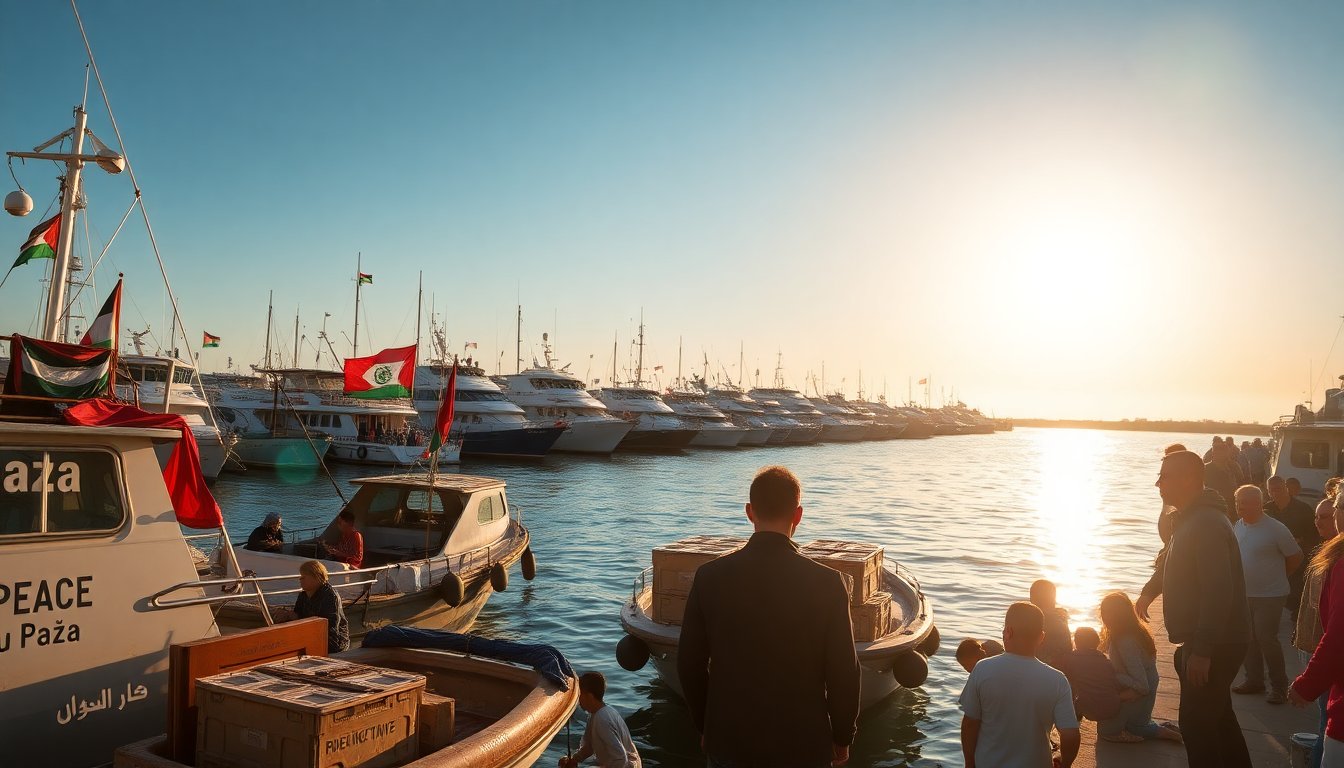Table of Contents
The Global Sumud Flotilla (GSF), an international coalition of activists, has launched a significant maritime mission from Tunisia to challenge Israel’s blockade of Gaza. This initiative has drawn global attention as over 40 vessels set sail from Bizerte Port, carrying between 500 and 700 participants from more than 40 different nations. The flotilla serves not only as a means of delivering humanitarian aid but also as a powerful symbol of solidarity against what many activists characterize as ongoing oppression and a humanitarian crisis in Gaza.
The Scope of the Mission
Participants in the GSF express a strong commitment to breaking the blockade imposed by Israel, which they believe intensifies the suffering of the Gazan population. Among the activists is Franco-Palestinian lawmaker Rima Hassan, who vocally addresses the humanitarian situation. Hassan’s involvement underscores the political dimensions of this mission, as she criticizes European governments for their perceived inaction regarding the violence in Gaza. She has faced obstacles in previous humanitarian efforts, highlighting the inherent risks of such undertakings.
The flotilla’s mission transcends logistical efforts; it represents a profound statement of solidarity with the people of Gaza. Prominent figures, including climate activist Greta Thunberg, have offered their support, illustrating the wide-ranging appeal and urgency of the cause. The GSF aims to deliver supplies while also raising awareness of the dire conditions faced by those living under siege.
Recent Developments and Challenges
As the flotilla continues its journey, significant challenges have already emerged. Reports surfaced this week of attacks on two of its ships while anchored near Tunis, raising concerns about potential Israeli military involvement. Activists reported that one vessel was targeted by a drone, prompting Tunisia’s Ministry of the Interior to label the incident as “premeditated aggression.” Despite these threats, the organizers remain resolute in their mission.
Historically, Israel has taken measures to thwart similar missions aimed at delivering aid to Gaza. Previous attempts have led to confrontations at sea, with Israeli naval forces intercepting vessels and seizing aid supplies. The GSF organizers are acutely aware of these risks, yet they stress the necessity of their mission, which they describe as the largest humanitarian maritime convoy to date. The situation’s urgency has prompted many to join this initiative, reflecting global concern for the humanitarian crisis in Gaza, especially as the United Nations warns of impending famine affecting over half a million people.
The Broader Implications
The GSF not only represents a humanitarian effort but also challenges Israel’s control over Gaza’s coastline. The activists advocate for international awareness and intervention, aiming to draw attention to the continuing humanitarian crisis in the region. Their message is clear: the blockade must end, and humanitarian aid must reach those in desperate need.
As this mission unfolds, it is crucial to consider the broader implications of such actions. The ongoing conflict and humanitarian issues in Gaza resonate on a global scale, prompting discussions about international law, human rights, and the responsibilities of governments to protect vulnerable populations. The Global Sumud Flotilla embodies the spirit of resilience and solidarity, standing firm against challenges while seeking to foster dialogue about peace and justice in the region.


